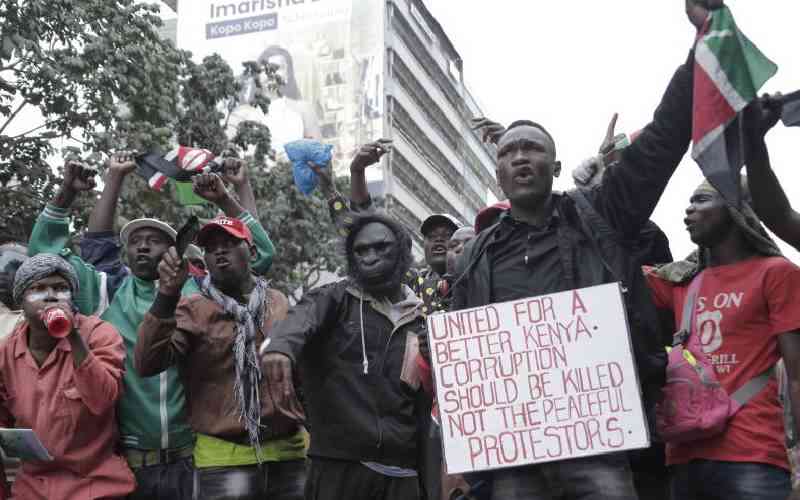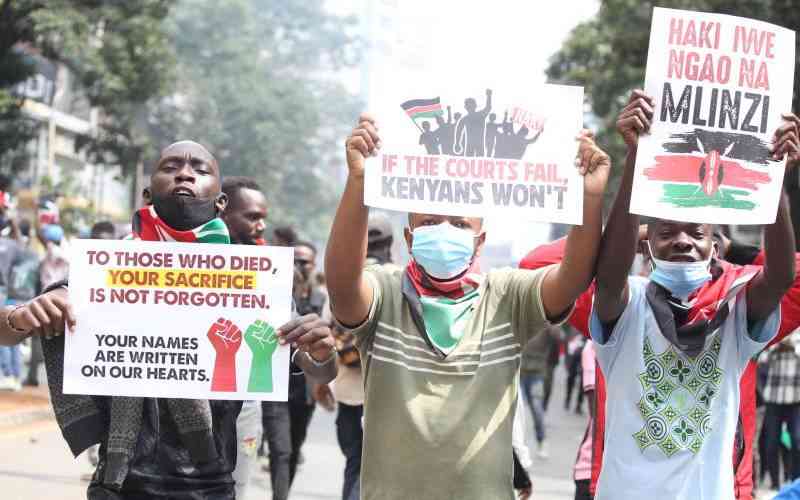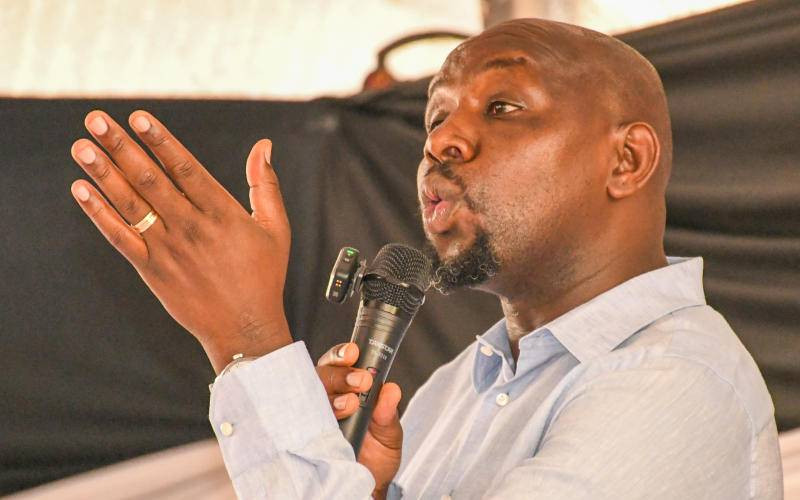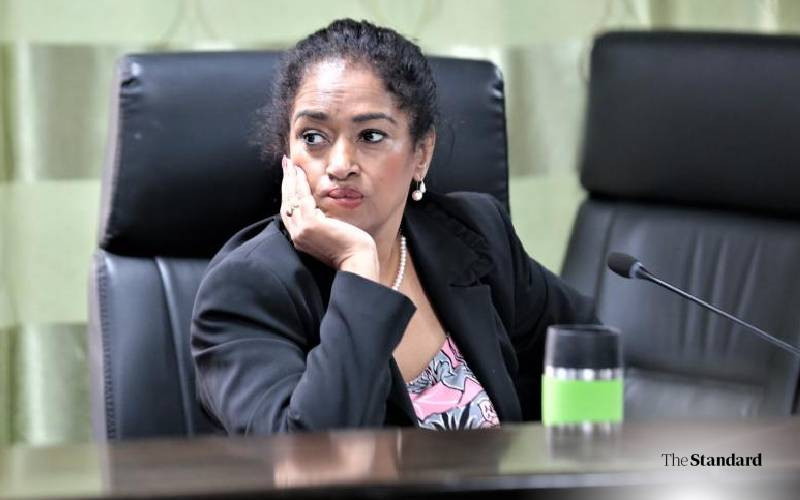
Although some argue that we operate in permanent campaign mode, the current national mood feels like this is Kenya’s earliest ever election campaign season. If this was a boxing match, in the blue corner, the incumbents insist it is not time for campaigns, but traverse the country on “development tours” and “empowerment events.” Their latest is “development visits” by sundry delegations to State House where “goodies” are doled out as if we have no functioning systems.
It’s less “bottom-up” and more “unifying the country taking development to every corner.” In unvarnished terms, “broad-based government” means “if you are not with us, you are against us”.
In the red corner, we have a scattered “anti-regime” front that isn’t quite the Opposition, given that our largest opposition party is an integral part of the broad-based government. Across this front we have a motley crew of announced presidential candidates offering “constitutionalism and the rule of law” or “leadership, not money, is the answer”, plus a raucous formation proclaiming “Ruto must go” as the priority agenda. If nothing else, this front is loudly driving our news cycle!
In truth, both broad-based government and the anti-regime front are consequences of Kenya’s Gen Z protests of mid-2024. Yet, beyond the usual political hecklers who never catch the eye of our investigative agencies for their inflammatory trash talk, both sides of the political divide are relatively low key for a week highlighted by June 25 (tomorrow), 2025 as the first anniversary of Parliament’s insurrection during last year’s protests. In short, Gen Z is the news cycle!
Let’s pursue three random angles to a Wednesday that may cap an interesting final week of June.
Though there is growing support for particular “2027 candidates,” especially “not the same recycled” names, among Gen Z or the wider construct of ”neutral Gen-Zote,” the larger call to both sides of the political divide during the week might speak to a “New Kenya” first. Quite simply, messaging that speaks not narrowly to new leaders, but broadly to a new country.




This is exactly as it should be. When we escape the current regime’s transformation blarney and bluster, one question might be as simple as why Kenya, the 47th largest country in the world by land size (23rd in Africa) and 26th largest country by population size (7th in Africa) is only the 67th largest economy (8th in Africa), 59th largest economy on a purchasing power parity basis, and a poor 160th out of 196 countries (19th in Africa) on per capita income, our standard of living proxy.
Before this regime crows about the economy ranking sixth in Africa using 2025 IMF forecasts when we’re not yet at mid-year, they might see this basic view as the “people’s” transformation baseline.
In other words, Wednesday offers the opportunity to call for a real transformation of Kenya, based on the visioning — what the future looks like — that the regime and anti-regime both lack, and moving beyond endless “what we are doing” mission statements preferred by this regime.
It is easier to befuddle Kenyans with “to do” promises and projects than offer a “to be” picture of tomorrow building from an honest one of today. That’s the essential failing in this regime’s mindset — there is no vision they articulate; no picture of what tomorrow might really look like.
What else might Wednesday offer? To be clear, it is firstly a day of remembrance, a day of peace and prayer for all Kenyans, not just Gen Z, to pay tribute to the young lives lost during last year’s protests, and to condole with their families. But it is equally a call for public accountability in the immediate, and justice as a lasting solution, in response to lives unnecessarily lost, and the many others disrupted by arbitrary arrests, brutal abductions and painful life-changing injuries borne.
For reasons that remain unfathomable to right-thinking Kenyans, young lives continue to be lost, and disrupted under this administration. Some will rightly argue that this also happened in the past. Yet, recall that this broad-based government was a desperate response to Gen Z agitation.
And, in the 10-point MoU signed between the UDA and ODM political parties to formalise this amorphous arrangement, point 4 committed to “promoting and protecting the lives of young people” who “must also be main streamed in all political spaces to bring their voices to the table”. Point 6 then promised to support “the right to peaceful assembly and protests under Article 37…and (ensure) compensation of all pending claims of abuse and derogation of this right.”
On this latter point, the MoU also called for an amnesty “to those charged for offences based on exercising their right to peaceful assembly” and an urgent update by “the National Police Service of their methods and processes of dealing with demonstrations and assemblies when they are held; particularly when they have to be managed or contained”. Kenyans are taking note.
Last but not least, point 10 of the MoU directly addressed the “spectre of abductions and extra-judicial killings not boding well for our democracy” by, with no hint of irony, committing to promote and protect “the sovereignty of the people, the Rule of Law and Constitutionalism”.
Stay informed. Subscribe to our newsletter
Yes, there is growing nation-wide impatience with this regime and its broad-based alter-ego, but Wednesday might even breathe life into this “paper” MoU. Remember, the other MoU commitments — equalising access to resources and opportunities; protecting and strengthening devolution; less opulence, arrogance and impunity and more integrity and dignity among leaders and public servants; the urgent national debt audit and responsible, accountable and equitable future borrowing; moving from talk to action in the war on corruption; and finally, stopping wastage and promoting austerity, justification and effectiveness in the use of public resources.
In a twist of fate, might Gen Z use Wednesday to present a report card on this MoU as they exercise their right to peaceful assembly and protest while calling for justice and accountability?
The third angle to Wednesday might be a message for 2027. Yes, on social media, there is talk of a march to State House, with a programme for the day. But the unwritten statement that Gen Z will make that day is their relevance as a key part of the 2027 voter base. One estimate says up to 14 million Gen-Z’s will be eligible to vote in 2027 (including Gen-Zs from 2017 and 2022).
For context, the Independent Electoral and Boundaries Commission (IEBC) expects 27.8 million registered voters in 2027, from 22.1 million in 2022. The voting age population in 2027 will be 32 million out of 56 million Kenyans, meaning Gen Zs accounts for 56 per cent of eligible voters, or proportionately to IEBC’s target, 12 million of 27.8 million registered voters. Adding Millennials, we are up to 21 million or 75 per cent of voters.
Of course, there’s more to the election than voter registration, but Wednesday reminds us to get our 2027 voter experience right, for both Gen-Z and Gen-Zote, from national identification, to voter registration, to voting, to vote counting, to results. Are we ready for a journey around the fresh message that “it’s who actually votes that counts, not who actually counts the votes”? Let’s pray for a Wednesday of peace, justice and accountability, not violence, bullets and tear gas.